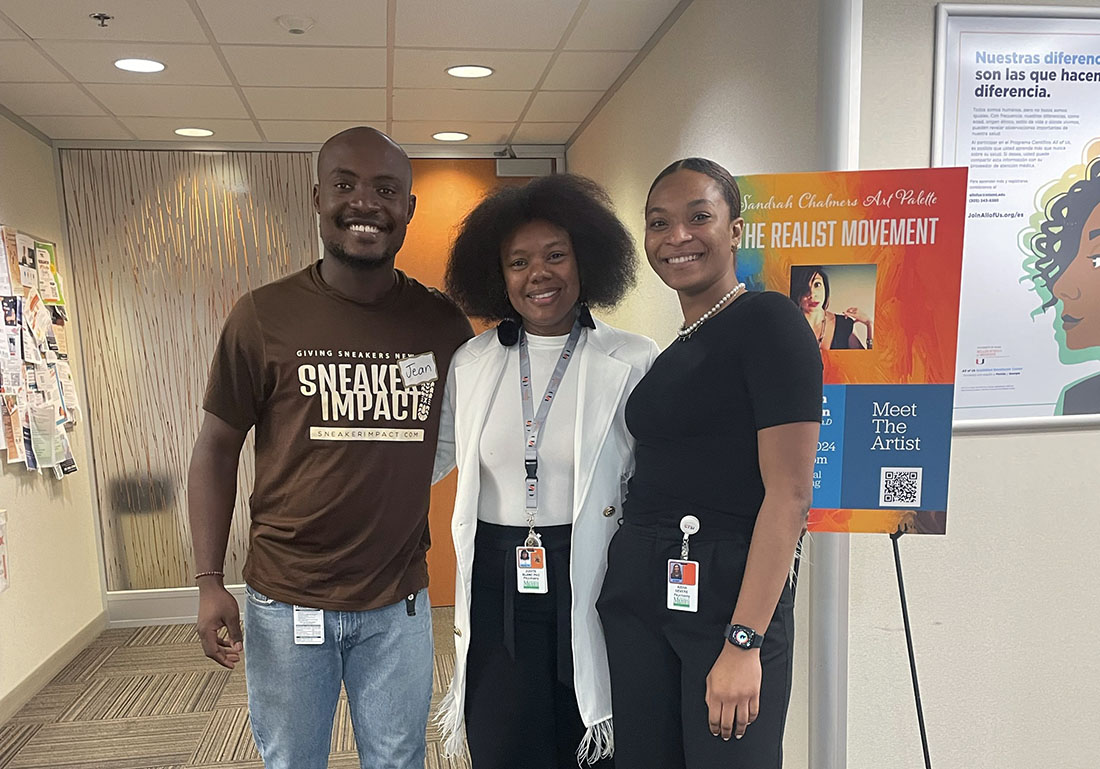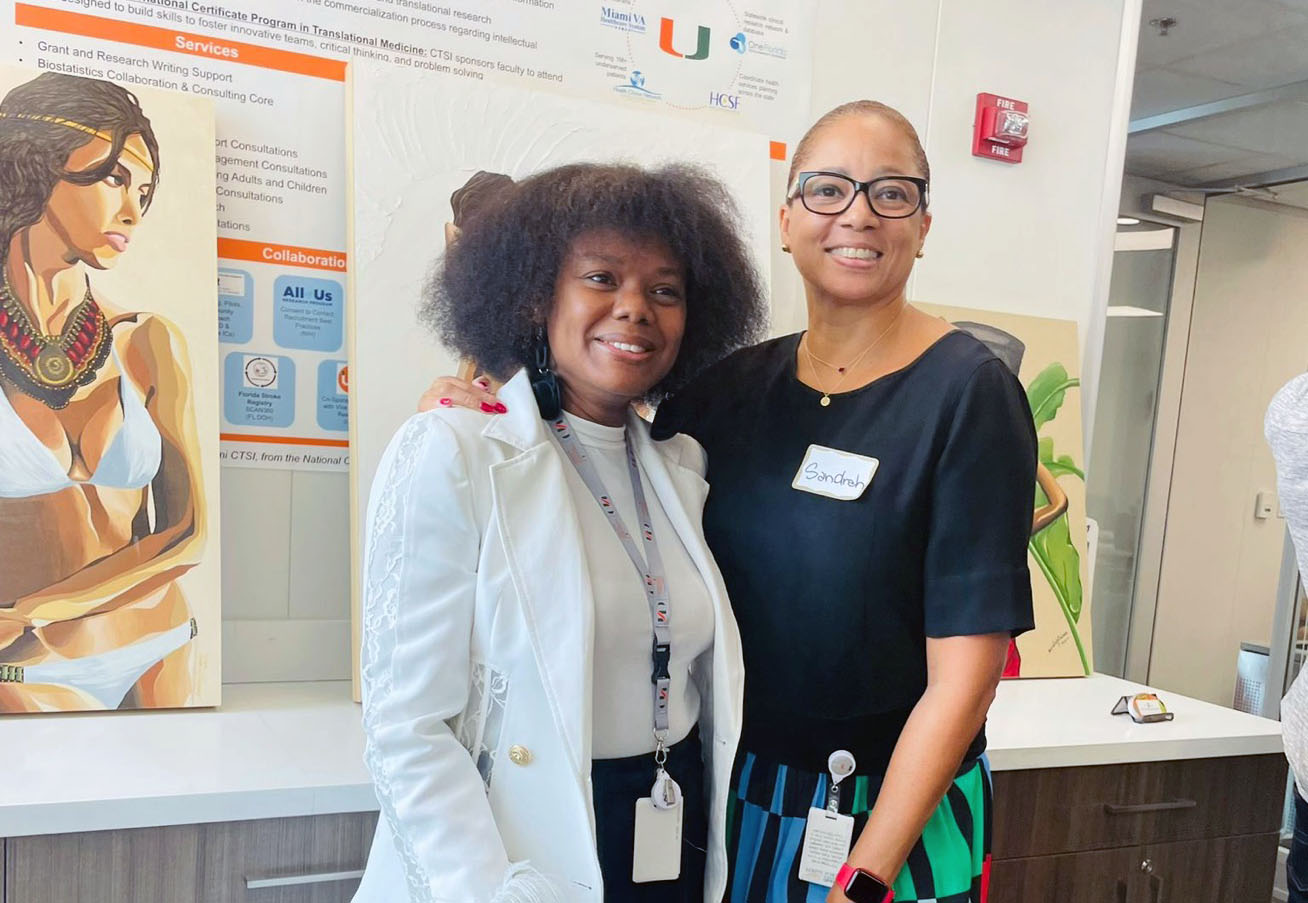
Article Summary
- Dr. Judite Blanc is using National Institutes of Health grants to study app-based telehealth for pregnant Black women and the impact of virtual reality on South Florida Black women with hypertension.
- The first study provides expectant mothers with free access to behavioral, interpersonal and compassion-focused therapy on the InovCares app.
- The second study introduces an eight-week, virtual reality-based stress reduction program.
One study focuses on a telehealth app. Another uses virtual reality. Both projects aim to improve health outcomes for Black women.
A major aim of two University of Miami Miller School of Medicine Holistic Families Lab initiatives is to determine, with the help of National Institutes of Health (NIH) grant funding, if technology can reduce risks of adverse health outcomes. The phase 1 Cocooned Moms Project, for example, will test if a maternal telehealth app can reduce stress, depression and blood pressure among pregnant Black women.
“Overwhelming, mental health is one of the drivers of the maternal health crisis, as well as a driver of higher maternal health mortality,” said Judite Blanc, Ph.D., an assistant professor of psychiatry and behavioral sciences at the Miller School and principal investigator of the studies.
App-based Mental Health Therapy
Dr. Blanc and colleagues will enroll 384 Black pregnant women in Miami, Tampa, Georgia and New York. At the outset, participants will report their stress level, sleep quality and quantity, and any symptoms of depression. The women will have free access to behavioral, interpersonal and compassion-focused therapy on the InovCares app. After three months with the app, Dr. Blanc and colleagues will repeat the baseline assessment and note any changes.

“We have substantial evidence showing that cumulative and intersectional stress, along with mental health factors and social determinants of health, is strongly associated with cardiovascular risks, including hypertension and preeclampsia,” Dr. Blanc said. “Our goal is reducing all those risk factors to see if we can help mitigate maternal mortality in the U.S., particularly among those that are at greater risk.”
The app was created by InovCares founder and CEO Mohamed Kamara. He approached Dr. Blanc to collaborate on the research after learning about her experience in maternal mental health research in disaster settings and her expertise using virtual reality for pregnancy education and stress reduction among perinatal women of color.
“I’m a Haitian mom,” Dr. Blanc said. “Unfortunately, we have evidence showing that Haitian women are even at greater risk for pregnancy-related complications, as well as high maternal mortality compared to other U.S. perinatal Black women. That’s one of the reasons I’m honored to join this project as a maternal health expert and biobehavioral scientist.”
The one-year, $360,000 funding for the Cocooned Moms Project comes from the National Institute on Minority Health and Health Disparities and the National Institute of Nursing Research.
Virtual Reality and Stress Management
Another set of research, the Realist Women Study, is fueled by $850,000 over five years from the National Heart, Lung and Blood Institute.
For the first phase, Dr. Blanc will speak with 16 Black women about stress, their definition of resilience and their willingness to use a virtual reality intervention. The investigators will note anthropomorphic measures like height and weight and ask participants to fill out baseline questionnaires about different types of stress. The women will also monitor their sleep health and measure their blood pressure at home for 24 hours.

Next, participants will take home virtual reality headsets provided by the University of Miami’s Creative Studio for an eight-week, virtual reality-based stress reduction program. The program teaches mindfulness meditation, breathing exercises and the interconnection between their thoughts, feelings and behavior.
“The goal is to test the feasibility and acceptability of a virtual reality intervention for reducing stress, building resilience and managing blood pressure among Black women with hypertension in South Florida,” said Dr. Blanc.
Tags: Dr. Judite Blanc, NIH grant, pregnancy, technology, telehealth, virtual reality

